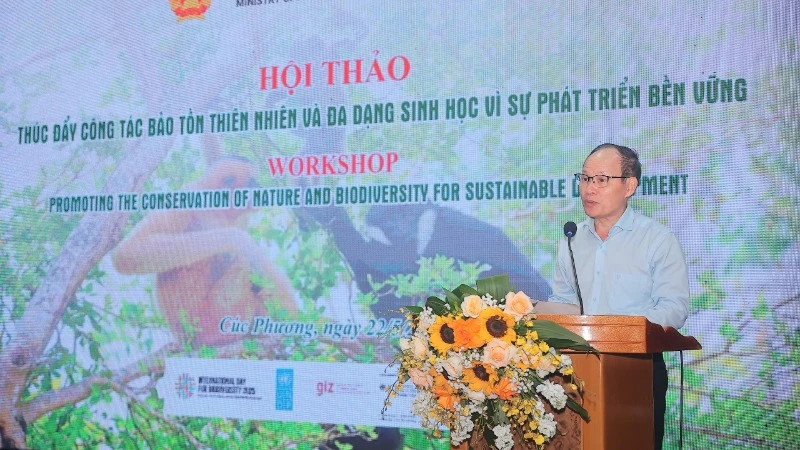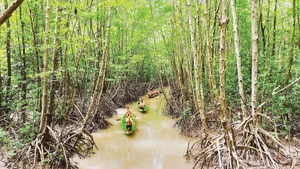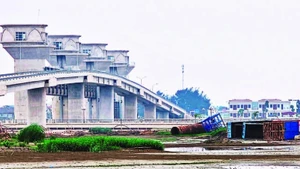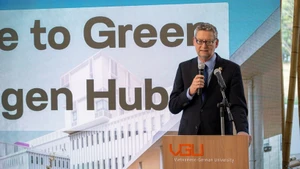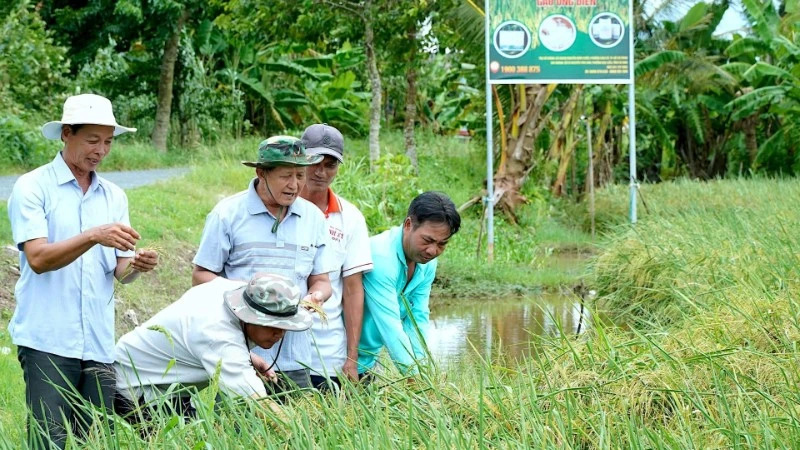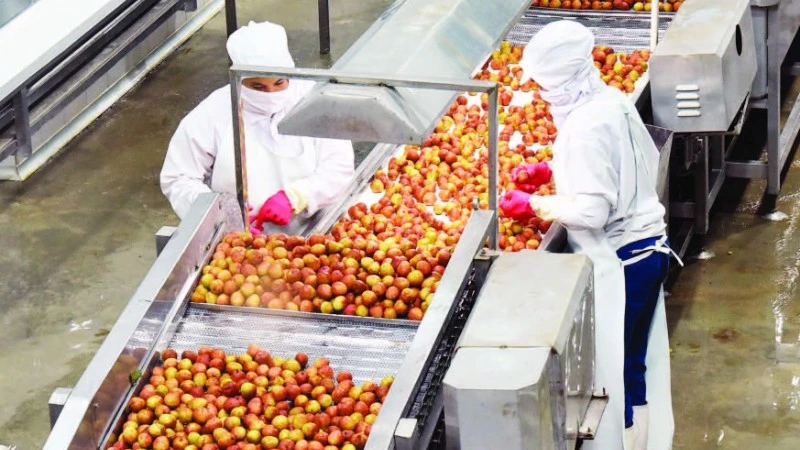The event was co-organised by the Ministry of Agriculture and Environment, the Ninh Binh Provincial People’s Committee, the United Nations Development Programme (UNDP), and the German Agency for International Cooperation (GIZ).
The workshop was attended by leaders of the Ministry of Agriculture and Environment, representatives from ministries, sectors, localities, and international organisations, management boards of national parks and nature reserves, scientists, experts, and local communities.
In his opening remarks, a representative from the Nature and Biodiversity Conservation Agency emphasised that this year’s theme is not only a call for humans to live in harmony with nature but also a strategic orientation for sustainable development, in which nature and biodiversity are regarded as essential foundations. The workshop was a vital forum for stakeholders to exchange information, discuss solutions, and promote the implementation of the goals of the Kunming–Montreal Global Biodiversity Framework and Viet Nam’s National Biodiversity Strategy to 2030, with a vision to 2050.
According to Patrick Haverman, Deputy Resident Representative of UNDP in Viet Nam, over one-third of Viet Nam’s mammal species are currently facing the risk of extinction. This is not just a national concern but a reflection of the global environmental crisis.
“Nature is not a barrier but a pillar of sustainable development,” he asserted, calling for biodiversity conservation to be integrated into development planning. He also urged the mobilisation of sustainable finance such as green credit, green bonds, ecotourism, and payments for ecosystem services.
During the workshop, participants discussed challenges including ecosystem degradation, unsustainable resource exploitation, and economic development pressures, while also highlighting opportunities for collaboration and innovative conservation initiatives from protected areas, national parks, and international organisations.
Viet Nam is currently ranked among the world’s 16 most biodiverse countries, with over 112 new flora and fauna discovered in recent years, many of which are rare and endemic to Viet Nam. The country has established 178 protected areas, 11 world biosphere reserves, 12 ASEAN heritage parks, and four global geoparks. The national forest coverage rate stands at 42.02%, including over 10 million hectares of natural forest.
The workshop was part of a series of events marking the International Day for Biological Diversity 2025, including a commemorative ceremony at Cuc Phuong National Park, a photo exhibition, communication campaigns, and public awareness-raising activities across the country.
Through this event, the Ministry of Agriculture and Environment and its partners reaffirmed their commitment to promoting nature conservation, restoring degraded ecosystems, and working towards a future where humans and nature develop together in harmony and sustainability.
